Based in Yorkshire, Samantha Addy is the visionary founder and CEO behind The Female Advisory Board (FAB), the UK’s first all-female peer advisory organisation. Since launching in September 2023, Samantha has built a powerful alliance of female business leaders who support each other through the challenges and triumphs of entrepreneurship.
Starting with just seven members, FAB has rapidly grown its membership presence, representing some of Yorkshire’s most successful female-led businesses, with ambitious plans to support c.1000 business leaders with UK-wide expansion. We caught up with Samantha to explore her journey, the unique challenges facing female entrepreneurs, and how peer advisory is revolutionising the way women approach business leadership.
What inspired you to launch The Female Advisory Board in 2023, and how did your own experiences shape the vision behind it?
Having run my own businesses and worked in senior operations roles at high growth companies, I understood the unique challenges that come with female leadership in business. I experienced first-hand the isolation that can accompany being at the top – that loneliness of making difficult decisions without peers who truly understand the pressures you face. Throughout my career, I realised there was a profound need for more robust support systems specifically designed for female-owned and led businesses. I saw talented, ambitious women struggling with challenges that could be overcome through the power of shared experiences and collaborative support.
My vision for FAB was born from this realisation: to create an equal business landscape where female-led businesses don’t just survive, but thrive. I wanted to build something that would eliminate the barriers and isolation that many women face in business leadership roles. Having experienced the power of peer support in my own career, I knew that bringing together like-minded female business leaders could create something truly transformative. The goal was simple yet ambitious – to level the playing field for the global workforce, resulting in a stronger economy and society. I wanted to create a sanctuary where women could engage in open, honest dialogue and receive valuable advice from peers who genuinely understand their journey.
FAB is the UK’s first all-female peer advisory organisation. Why was creating a female-only space so important to you, and how has that focus impacted the way your members connect and grow?
The business world continues to underrepresent women in leadership positions, and I knew from my own experience that many female leaders struggle with isolation, especially those operating at the highest levels of their industries.
Women often face different pressures, different forms of self-doubt, and unique barriers that can only be truly understood by other women who’ve walked similar paths. I wanted to create a sanctuary where women could be completely honest without judgement about both the professional and personal challenges they face, something that might be more difficult in mixed-gender environments.
The impact of this female-only focus has been transformative for how our members connect and grow. The testimonials speak volumes – our members consistently mention the solidarity, the sense of “it isn’t just me,” and the safety they feel in sharing their vulnerabilities and challenges. One member perfectly captured it by saying that although their businesses and skillsets are very different, they all suffer similar challenges, fears, and bouts of loneliness. This shared understanding creates an environment where women can engage in open, honest dialogue and receive advice from peers who genuinely get it.
The female-only structure has fostered an alliance where members are fully invested in each other’s success, offering not just business advice but emotional support and friendship. This approach has created a positive environment where women can work on their businesses, not just in them, leading to remarkable results like one member achieving £350K growth in just one quarter after implementing suggestions from a FAB meeting.
One of FAB’s founding principles is helping to level the playing field. What systemic issues do you believe are still most urgent for female entrepreneurs in the UK?
I often get told, “Women don’t need coaching or mentoring, they just need money.” Now, yes, they absolutely do need money and sourcing investment/funding for a woman without a male on her founding or leadership team is incredibly and frustratingly very difficult. But this is just one out of so many challenges and systemic issues.
We hold inter-generational beliefs, going back circa six decades, that need unpicking. Women are far freer now than ever, yet there is still so much holding us back. We are typically the main caregivers; we are judged based on whether we do/don’t have children; we are judged on how we present and articulate ourselves that a man would never be.
We are brilliant leaders (typically servant leaders), which comes at a significant emotional cost to our wellbeing. There is a constant battle to prove ourselves as the leaders we are, and we can struggle to get our voices heard in a room despite growing multi-million-pound businesses. Most importantly, we typically undervalue our self-worth and how much potential we actually have – when you support someone to realise their true value, it is very powerful and transformative.
The need for safe, supportive environments is a recurring theme in your work. What does a truly safe space look like in a business context, and why do you think it’s still so rare?
“Talking shop” is very private and personal. You need trust to be able to divulge information, and importantly, you need to know that there is no bias in a room of people whose sole intention is to hear you, understand you and give their advice and support.
A genuinely safe, supportive environment has several key characteristics. Leaders need to feel they can express controversial opinions without fear of retaliation or being judged. There’s psychological safety where they can admit mistakes, ask questions, and propose unconventional ideas without judgement. Communication flows openly in a room of people who know exactly what you are going through, and feedback is given constructively rather than punitively.
In practical terms, this means leaders model vulnerability by acknowledging their own uncertainties and errors. Leaders’ diverse perspectives are genuinely valued, not just tolerated, and there’s trust that confidential information will be respected.
The scarcity stems from several deep-rooted factors. Many business cultures still operate on outdated command-and-control models where admitting uncertainty is seen as weakness. There’s often a mismatch between stated values and actual behaviours.
Leadership development frequently focuses on technical skills rather than emotional intelligence and creating psychological safety. The pressure for quick results can override the patience needed to build trust. Additionally, many leaders haven’t experienced truly safe environments themselves, so they don’t know how to create them or where to find them.
Mental health challenges, particularly loneliness and mindset, are something you regularly see among female founders. How does FAB help members navigate those struggles?
Mental health challenges, particularly loneliness and mindset complexities, are absolutely something I see regularly among female founders, and it’s one of the core reasons I created FAB. When you’re leading a business, the responsibility sits squarely on your shoulders – every decision affects your team, clients, and personal life. For many female entrepreneurs, this isolation can quickly lead to overwhelm, self-doubt, and that crushing feeling of being alone at the top. The loneliness that comes with high-level decision-making is something that many leaders in business experience, especially those operating at the highest levels of their industries.
FAB directly addresses these mental health challenges by creating a trusted sanctuary where women can share the emotional load and feel genuinely supported. This solidarity is incredibly powerful for mental wellbeing. Through our monthly meetings and one-to-ones, members can work on their mindset and business challenges collaboratively, knowing they have a network of smart, experienced and empathetic women who will always have their back.
A 2023 survey by Simply Business found that 56% of small business owners have experienced poor mental health, with 22% reporting loneliness. What more needs to be done by both the business community and policymakers to support women’s wellbeing in entrepreneurship?
The business community must recognise that supporting female entrepreneurs isn’t just about equality, it’s about economic strength. We need more investment in female-led businesses, better access to funding, and crucially, recognition that women face unique challenges that require tailored support systems.
Policymakers need to implement policies that recognise the specific barriers women face in business, from childcare support to flexible working arrangements, and invest in initiatives that level the playing field.
We also need better representation in leadership positions across all sectors, because when women see other women succeeding, it changes what they believe is possible for themselves. Ultimately, we need a cultural shift where supporting women in business isn’t seen as a nice-to-have, but as essential for creating a stronger economy and society – because when women thrive in business, everyone benefits.

Many small business owners feel disconnected from government support. What is your perspective on the current relationship between small businesses and government, and where do you think improvements could be made?
The relationship between small businesses and the government is frankly broken, and as someone who works daily with female entrepreneurs, I see the devastating impact this has on our economy first-hand. The government has become a dirty word to most small business owners I know, and for good reason; the new legislation being introduced is creating employment issues in the private sector that are particularly crushing for small and micro businesses. As a result, redundancies are being made, profit margins are being squeezed, and this is resulting in frustration and anger towards the government.
Rather than supporting the backbone of our economy, we’re seeing business owners forced to outsource talent, systems, and processes outside the country just to survive, which is completely counterproductive to British entrepreneurship. There’s a real irony here. While the government pushes for more public sector employment, it’s simultaneously ignoring and under-supporting the small business sector that actually drives innovation and job creation. There is a reason so many business owners are leaving the country – we can’t be leaders in innovation when the appetite for investment is low and we are being penalised for growth through taxes and restrictions.
What I’m witnessing is a boom in micro businesses where entrepreneurs are choosing not to employ anyone because the regulatory burden makes it too risky and expensive. These business owners are finding they can have a better quality of life running lean operations than being trapped in rigid corporate structures. The government needs to fundamentally shift its approach. Instead of viewing small businesses as a revenue source to be taxed and regulated, they need to recognise them as the economic engine they are.
We need simplified regulations, genuine support for growth rather than barriers, and policies that encourage employment rather than discourage it. Until policymakers understand that supporting small businesses isn’t just good policy but essential for our economic future, we’ll continue to fall behind as a nation rather than leading as an example of British entrepreneurship.
FAB is already connecting women across the UK. What is your vision for expanding its reach, and what would you say to women thinking about joining a group in their region?
I’m incredibly proud of the powerful alliance we’ve built in Yorkshire through our FAB Scale and Enterprise boards, and the momentum we’re seeing is truly exciting. I’ve had demand from female leaders from other regions reaching out to ask when FAB will be available in their area.
This appetite for genuine peer support tells me we’re addressing a real need that extends far beyond Yorkshire. To meet this demand, I’m starting to expand FAB into new regions across the UK, each led by a dedicated FAB Chair who will be a well-connected and experienced business leader in their area. These Chairs will undergo extensive training to ensure we maintain the same values and high standards that have made FAB so successful in Yorkshire.
This expansion model allows us to scale while maintaining the intimate, trusted environment that makes FAB so special. For any female leaders who are inspired by what we’re building and want to either join FAB or step up as a Chair in their region, I encourage you to visit our website and register your interest.
Looking ahead, what are your priorities for FAB in the next 12 to 18 months, and how do you see the organisation evolving?
Year two for FAB has been about establishing strong foundations to scale. It’s all centred around membership experience and the value they get at each and every board meeting, one-to-one and encounter with FAB.
I’ve strategically decided to grow slow in order to listen and understand what great boards look like and, honestly, what not so great boards look like, too.
Success for Fab over the next 12-18 months has national roll out expansion on the horizon, and that will be complex to deliver. I’m also very open-minded to learning with the changes, and what I mean by that is, no matter what you plan and prepare for, sometimes it doesn’t always work out like that. So long as I listen to existing and new members, new Chairs, FAB will be guided by them.
The rest is just economies of scale, whilst upholding the vision to be recognised as the global leader for female business leaders to access executive coaching and peer advisory board groups.
Finally, what advice would you give to a female business owner who is looking to grow but doesn’t know where to start?
My biggest piece of advice is that you don’t have to figure it out alone. Nor do you have to have all the answers and solutions or have all the knowledge. Many of us suffer from similar challenges, fears, and bouts of loneliness, questioning our own abilities and juggling that messy mindset, this is regardless of our industry or business size.
The first step is recognising that seeking support isn’t a sign of weakness – it’s a strategic decision that successful leaders make to grow their business. This is where peer advisory groups become invaluable. When you’re surrounded by other female business leaders who understand your journey, you gain access to collective wisdom that can transform your business and your knowledge. The beauty of peer advisory is that you’re not just receiving support, you’re also contributing your own expertise, which strengthens your leadership skills and builds confidence.
Whether you’re in the early stages of growth or scaling for larger success, having a trusted alliance network of like-minded women who are fully invested in your success provides the clarity, accountability, and strategic thinking you need to move forward. Don’t underestimate the power of collaboration – it’s often the missing piece that transforms overwhelm into confident, strategic action, and ultimately growth for you and your business.




